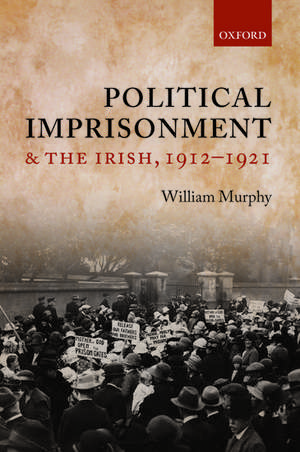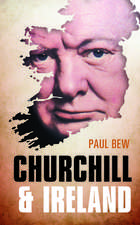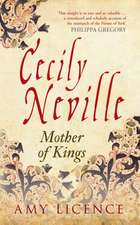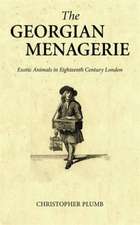Political Imprisonment and the Irish, 1912-1921
Autor William Murphyen Limba Engleză Paperback – 14 apr 2016
| Toate formatele și edițiile | Preț | Express |
|---|---|---|
| Paperback (1) | 258.64 lei 31-37 zile | |
| OUP OXFORD – 14 apr 2016 | 258.64 lei 31-37 zile | |
| Hardback (1) | 775.74 lei 31-37 zile | |
| OUP OXFORD – 6 mar 2014 | 775.74 lei 31-37 zile |
Preț: 258.64 lei
Preț vechi: 319.98 lei
-19% Nou
Puncte Express: 388
Preț estimativ în valută:
49.49€ • 51.81$ • 40.95£
49.49€ • 51.81$ • 40.95£
Carte tipărită la comandă
Livrare economică 25-31 martie
Preluare comenzi: 021 569.72.76
Specificații
ISBN-13: 9780198784555
ISBN-10: 0198784554
Pagini: 314
Dimensiuni: 156 x 234 x 17 mm
Greutate: 0.51 kg
Editura: OUP OXFORD
Colecția OUP Oxford
Locul publicării:Oxford, United Kingdom
ISBN-10: 0198784554
Pagini: 314
Dimensiuni: 156 x 234 x 17 mm
Greutate: 0.51 kg
Editura: OUP OXFORD
Colecția OUP Oxford
Locul publicării:Oxford, United Kingdom
Recenzii
Political Imprissonment in Ireland marks the appearance of a significant publication relating to Ireland's revolutionary decade. This is the first comprehensive study of political imprisonment in the years 1912 to 1921, when 6,129 men and women were either interned or imprisoned as a result of the unrest in the country in the aftermath of the 1916 rebellion and subsequent War of Independence.
Murphy provides a well-written and meticulously researched account of Irish imprisonment... an important study of a central facet of modern Irish history that will undoubtedly pave the way for closer analysis
a well-written, direct, concise, engaging, and enjoyable study, neither disappointingly simplistic nor needlessly esoteric. It is accessible to new students of the period and specialists alike. The original research is extremely impressive and renders the work a valuable contribution to prison studies and studies of the Irish revolution while it is simultaneously a great sample of history written from below.
This is a well-written and tightly-argued book. Murphy lays out his evidence clearly and carefully, yet gives readers an accessible and engaging text. His analysis of the Irish prison administration is first-class and is an important addition to the literature.
This is a landmark study on the subject and will be a benchmark by which subsequent work in this area is judged.
William Murphy's monograph is an exciting and necessary scholarly addition. Meticulously researched, broadly considered, and nuanced in interpretation, Murphy's book convincingly argues for the need to move beyond the public arena and instead to examine the period through the usually hidden "prism" of the prison.
Murphy offers the first comprehensive history of a decade during which political prisoners ... effectively turned the apparatus of state control into a site of active revolution ... [the book makes] important contributions to political and social history ... bring[s] to light hitherto neglected perspectives on the ordinary activists, paramilitaries and prisoners and their families and communities who experienced and contributed to a decade of monumental change.
Drawing on a wide range of archival sources, manuscripts, contemporary publications, memoirs, and secondary literature, Murphy provides a social and cultural history of political imprisonment. This is a welcome approach, moving the focus away from previous research on political developments surrounding certain prisons and individuals ... [a] well-written and easy to read book.
[Murphy's] work is detailed, and complements well the existing literature ... a formidable and sensitive study of the 'Irish felon'
a closely detailed, subtly nuanced study of a penal system placed under severe, almost intolerable, strain by increasingly organised protests by prisoners demanding political status ... his account does much to illuminate the gradual poisoning of the political atmosphere.
With its comprehensive scholarly apparatus, this book will provide great assistance to all its readers ... this is first-rate scholarship, working on material of unvarying interest.
William Murphy has produced the most complete study to date of the experiences of Irish political prisoners. Beginning with the treatment meted out to suffragettess, Murphy takes us with great skill through the different phases of government policy towards republican prisoners, through hunger strikes and escapes. Political Imprisonment and the Irish, 1912-1921 will be the definitive account for some time to come.
Murphy provides a well-written and meticulously researched account of Irish imprisonment... an important study of a central facet of modern Irish history that will undoubtedly pave the way for closer analysis
a well-written, direct, concise, engaging, and enjoyable study, neither disappointingly simplistic nor needlessly esoteric. It is accessible to new students of the period and specialists alike. The original research is extremely impressive and renders the work a valuable contribution to prison studies and studies of the Irish revolution while it is simultaneously a great sample of history written from below.
This is a well-written and tightly-argued book. Murphy lays out his evidence clearly and carefully, yet gives readers an accessible and engaging text. His analysis of the Irish prison administration is first-class and is an important addition to the literature.
This is a landmark study on the subject and will be a benchmark by which subsequent work in this area is judged.
William Murphy's monograph is an exciting and necessary scholarly addition. Meticulously researched, broadly considered, and nuanced in interpretation, Murphy's book convincingly argues for the need to move beyond the public arena and instead to examine the period through the usually hidden "prism" of the prison.
Murphy offers the first comprehensive history of a decade during which political prisoners ... effectively turned the apparatus of state control into a site of active revolution ... [the book makes] important contributions to political and social history ... bring[s] to light hitherto neglected perspectives on the ordinary activists, paramilitaries and prisoners and their families and communities who experienced and contributed to a decade of monumental change.
Drawing on a wide range of archival sources, manuscripts, contemporary publications, memoirs, and secondary literature, Murphy provides a social and cultural history of political imprisonment. This is a welcome approach, moving the focus away from previous research on political developments surrounding certain prisons and individuals ... [a] well-written and easy to read book.
[Murphy's] work is detailed, and complements well the existing literature ... a formidable and sensitive study of the 'Irish felon'
a closely detailed, subtly nuanced study of a penal system placed under severe, almost intolerable, strain by increasingly organised protests by prisoners demanding political status ... his account does much to illuminate the gradual poisoning of the political atmosphere.
With its comprehensive scholarly apparatus, this book will provide great assistance to all its readers ... this is first-rate scholarship, working on material of unvarying interest.
William Murphy has produced the most complete study to date of the experiences of Irish political prisoners. Beginning with the treatment meted out to suffragettess, Murphy takes us with great skill through the different phases of government policy towards republican prisoners, through hunger strikes and escapes. Political Imprisonment and the Irish, 1912-1921 will be the definitive account for some time to come.
Notă biografică
William Murphy is an historian of the political and cultural history of modern Ireland. The North American Society for Sport History named The Gaelic Athletic Association, 1884-2009, which he co-edited, best edited collection of 2009.













